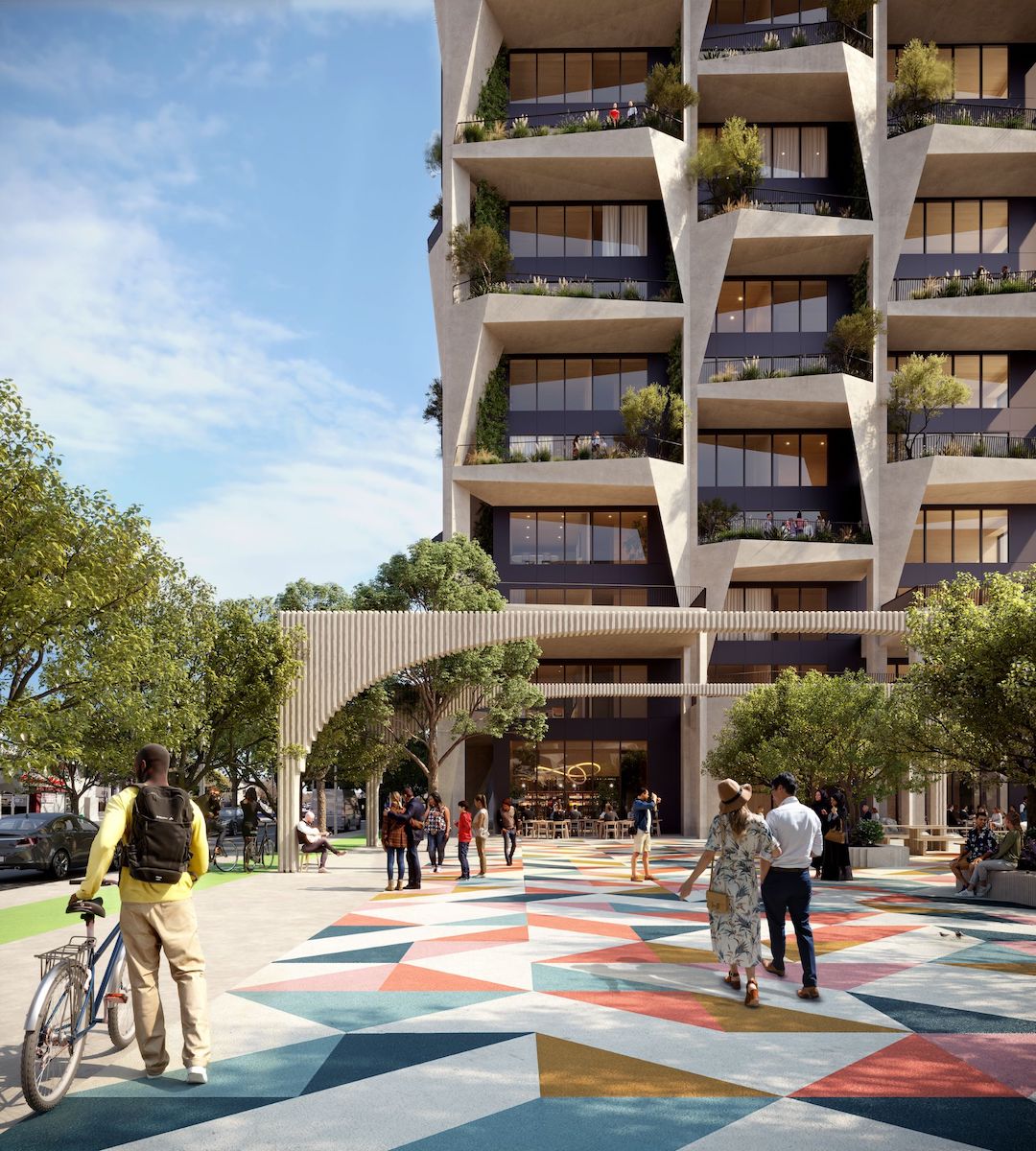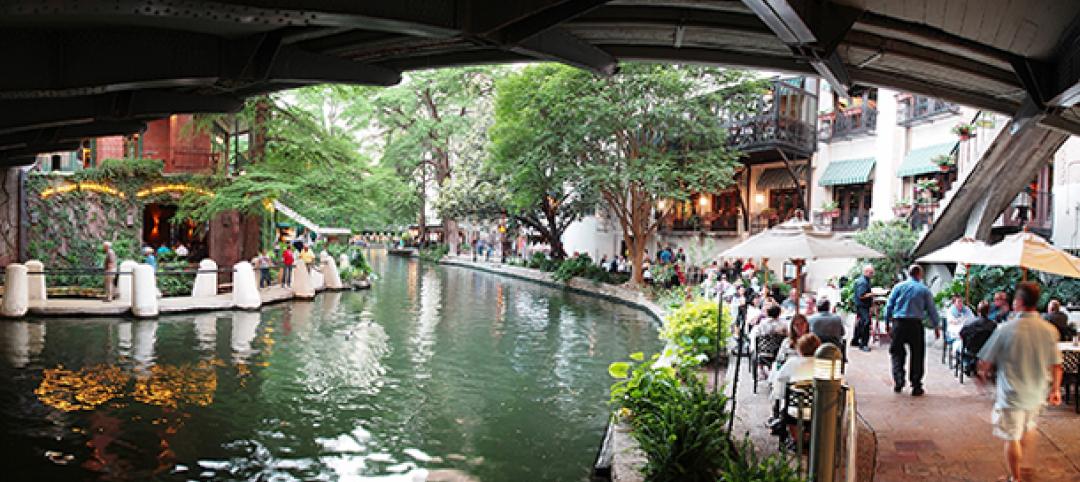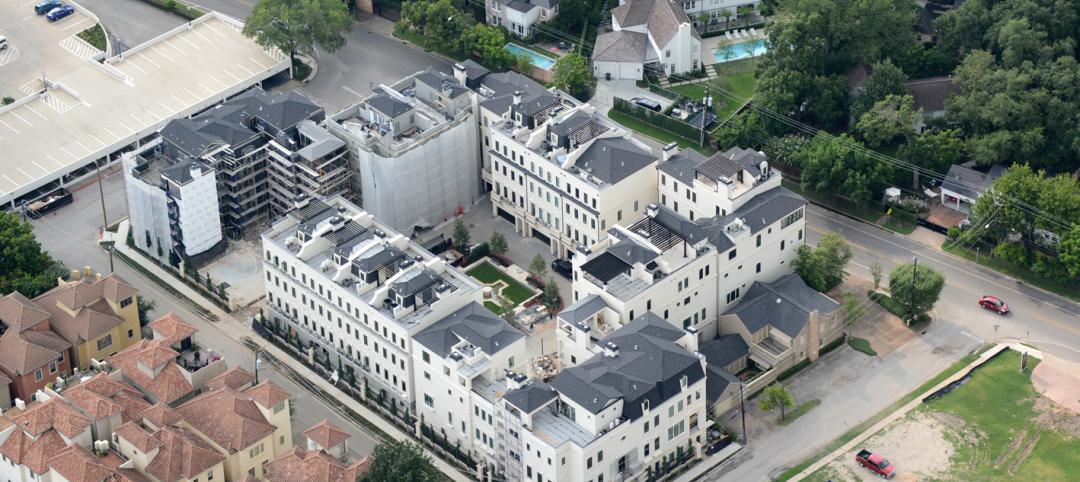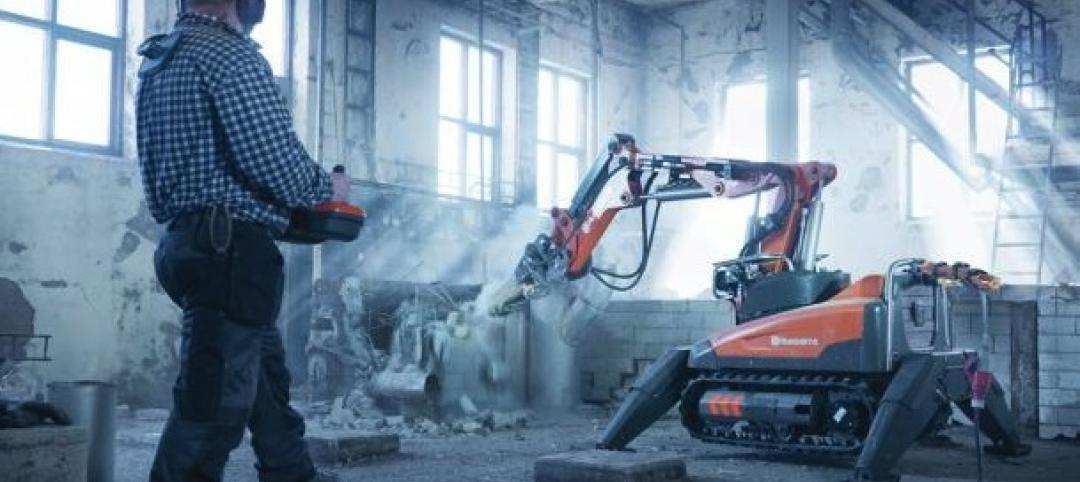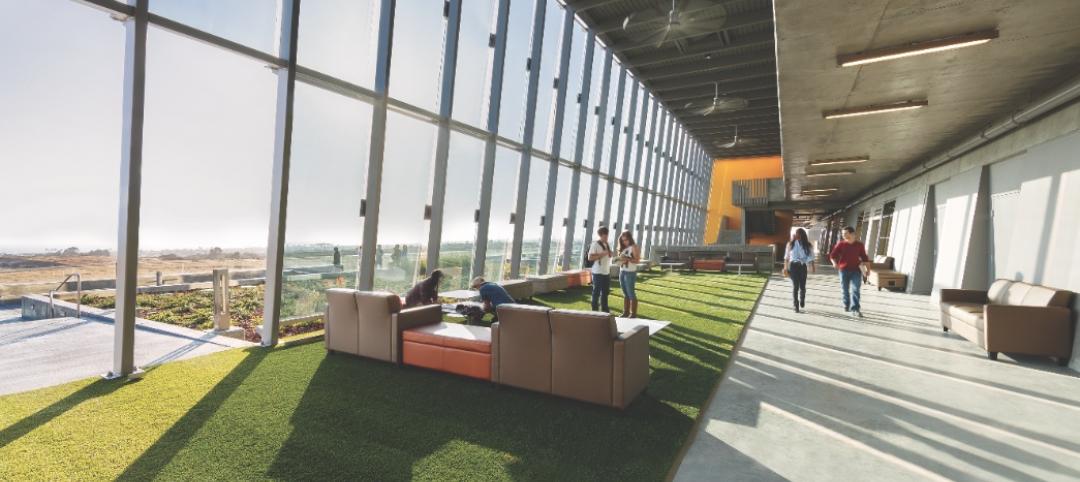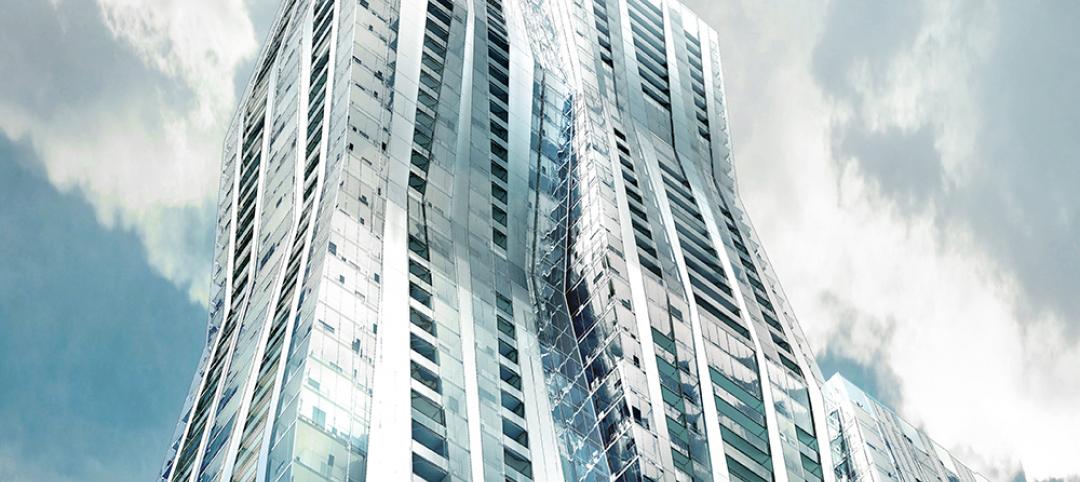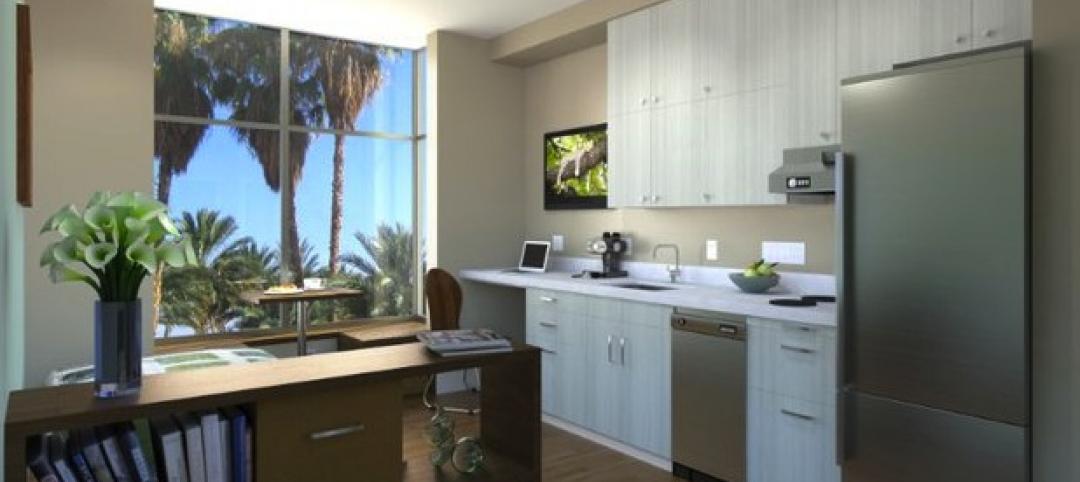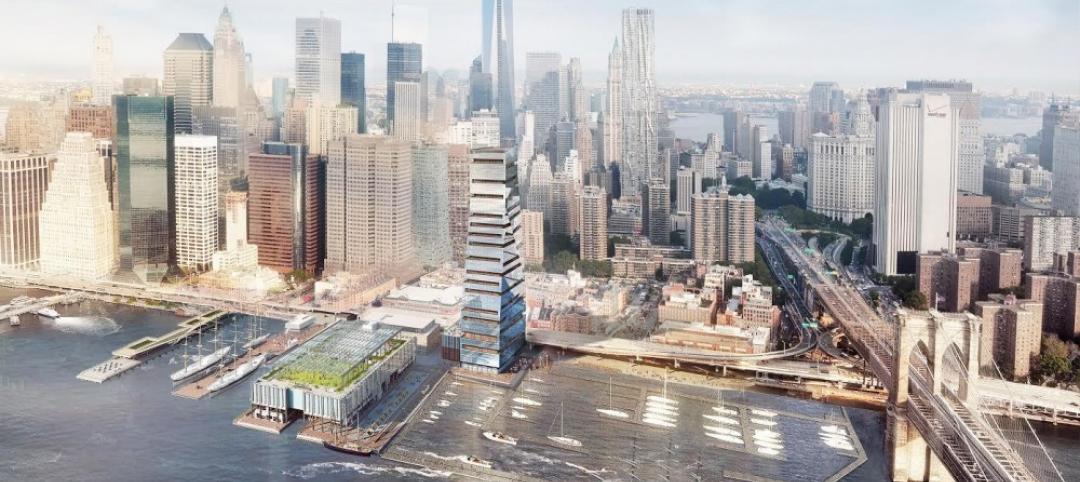Nabr, a first-of-its-kind residential development company co-founded by Bjarke Ingels, Toni Bahar, and Nicholas Chim, is hoping to reimagine the future of urban living by offering personalized, sustainable urban homes that will be co-designed with each resident.
The “people-first” company has a five-step process that allows residents to purchase and customize their homes. The first step is to join the waitlist and answer a short questionnaire explaining any needs or desires for the home. When an apartment becomes available, Nabr will reach out to move forward to the next step.
Step two is to customize the home. Buyers will receive an invite to Nabr’s Design Studio to select and customize the home from a curated list of layouts, interiors, and optional upgrades. Step three allows buyers to choose their path to ownership. Buyers can buy upfront or qualify for Nabr’s LEAP program to lock in the purchase price on day one while paying a monthly lease and earning credits toward the home purchase. Step four sees buyers reserving the home with a $1,000 refundable reservation fee, and step 5 is to officially pre-order the home with a non-refundable deposit as low as 1% of the home’s purchase price.
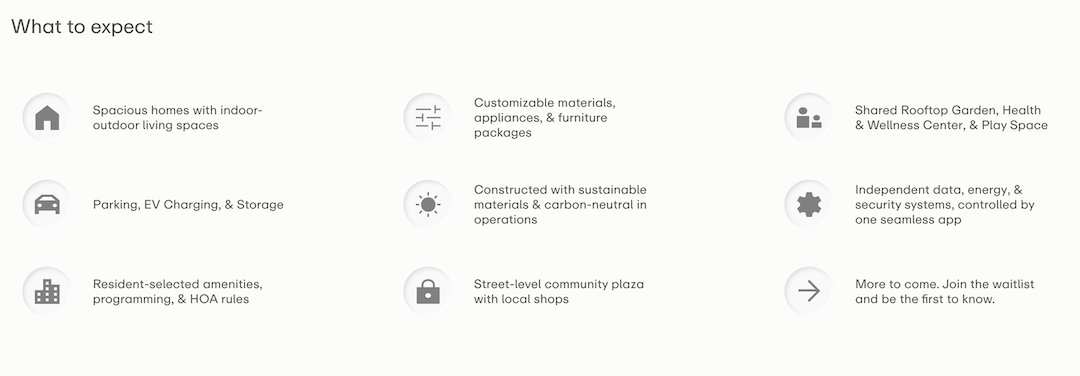
SoFa One, located in downtown San Jose, will be the company’s first development. It will include 125 personalized, sustainable homes in studio, one-, two-, and three-bedroom+ layouts. SoFa One, as well as all subsequent Nabr developments, will feature View Smart Windows. View Smart Windows automatically adjust to provide continuous access to natural light and outdoor views while minimizing heat and glare. The windows reduce energy consumption for cooling and lighting by up to 20%. Nabr developments will also use View’s cloud-connected smart building network, View Net, to power all connected products such as smart locks, access controls, air quality sensors, smart thermostats, and parking.
Prices for SoFa One apartments will start in the high $700Ks. The development is expected to break ground in summer 2022 with occupancy expected by summer 2023.
Related Stories
Smart Buildings | Jan 7, 2015
Best practices for urban infill development: Embrace the region's character, master the pedestrian experience
If an urban building isn’t grounded in the local region’s character, it will end up feeling generic and out-of-place. To do urban infill the right way, it’s essential to slow down and pay proper attention to the context of an urban environment, writes GS&P's Joe Bucher.
| Jan 6, 2015
Construction permits exceeded $2 billion in Minneapolis in 2014
Two major projects—a new stadium for the Minnesota Vikings NFL team and the city’s Downtown East redevelopment—accounted for about half of the total worth of the permits issued.
| Jan 2, 2015
Construction put in place enjoyed healthy gains in 2014
Construction consultant FMI foresees—with some caveats—continuing growth in the office, lodging, and manufacturing sectors. But funding uncertainties raise red flags in education and healthcare.
Sponsored | | Dec 30, 2014
Case studies: Engineered wood brings cost savings, design flexibility across commercial project types
For commercial architects facing increasing pressure to design innovative structures while simultaneously cutting costs and accommodating tight deadlines, engineered wood systems are providing a welcome solution.
| Dec 28, 2014
Robots, drones, and printed buildings: The promise of automated construction
Building Teams across the globe are employing advanced robotics to simplify what is inherently a complex, messy process—construction.
| Dec 28, 2014
AIA course: Enhancing interior comfort while improving overall building efficacy
Providing more comfortable conditions to building occupants has become a top priority in today’s interior designs. This course is worth 1.0 AIA LU/HSW.
| Dec 28, 2014
6 trends steering today's college residence halls
University students want more in a residence hall than just a place to sleep. They want a space that reflects their style of living and learning.
| Dec 22, 2014
Studio Gang to design Chicago’s third-tallest skyscraper
The first U.S. real-estate investment by The Wanda Group, owned by China’s richest man, will be an 88-story, 1,148-ft-tall mixed-use tower designed by Jeanne Gang.
| Dec 17, 2014
ULI report looks at growing appeal of micro unit apartments
New research from the Urban Land Institute suggests that micro units have staying power as a housing type that appeals to urban dwellers in high-cost markets who are willing to trade space for improved affordability and proximity to downtown neighborhoods.
| Dec 15, 2014
SHoP Architects plans to turn NY's Seaport District into pedestrianized, mixed-use area
The scheme includes a proposed 500-foot luxury residential tower that would jut out into the harbor, extending the Manhattan grid out into the waterfront.


